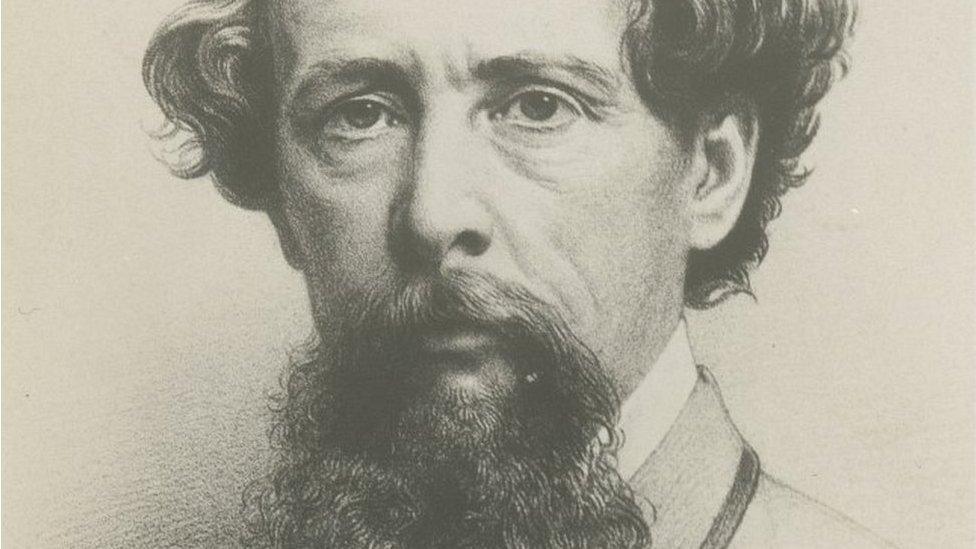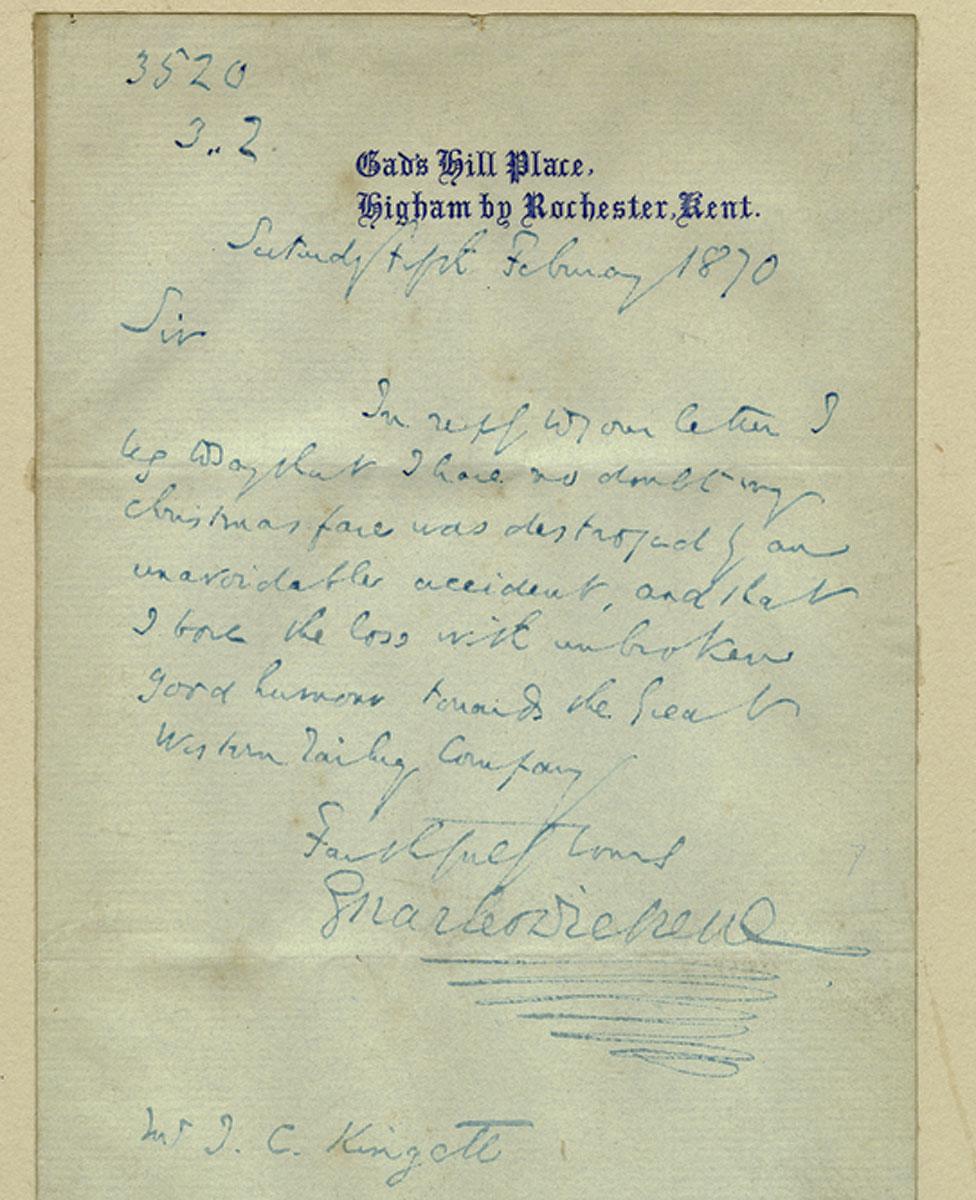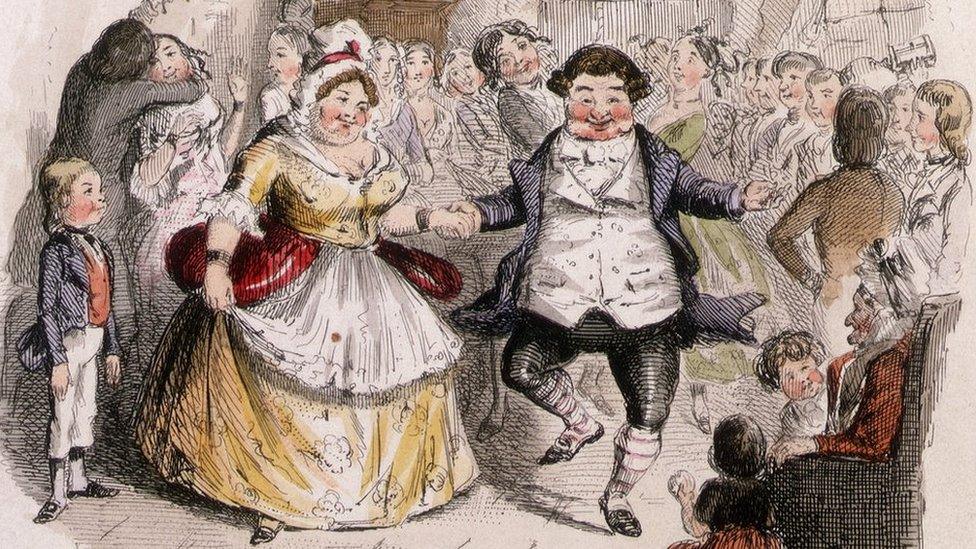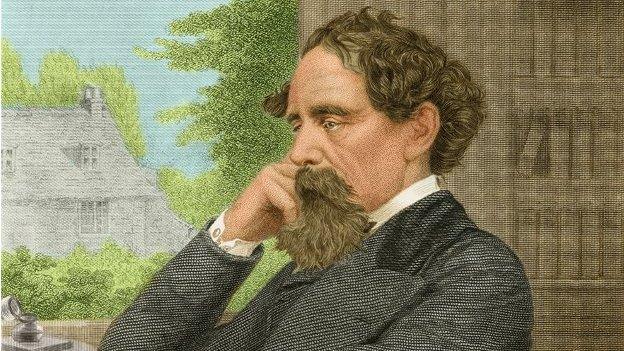Charles Dickens: The railway fire that marred Christmas
- Published

The author of A Christmas Carol, who died in June 1870, is credited with helping to popularise some of the traditions we associate with the festive season
A long-lost letter by Charles Dickens shows how the man who helped shape our festive season may have had his last Christmas marred by a burned turkey.
In the letter, held at York's National Railway Museum, the author forgives Great Western Railway for a fire that destroyed a parcel of yuletide goodies.
In it was a turkey which had been destined for his 1869 Christmas feast.
Dickens wrote: "I have no doubt my Christmas fare was destroyed by an unavoidable accident."
The unfortunate episode took place in Christmas week 1869, when a horsebox with parcels from Hereford caught fire, destroying the contents, near Hanwell railway station in west London.
Great Western Railway's JC Kingett wrote to Dickens to explain and apologise about the destruction of the parcel, which had been sent by the manager of the author's reading tours. Dickens replied in 1870.
National Railway Museum curator Ed Bartholomew said: "Every now and then we are fortunate to uncover a hidden gem in our railway archive."
The museum claimed the letter had been found during a recent audit of its millions of documents - remarkably, almost exactly 150 years on from the fire, and ahead of the museum's busy Christmas holiday season.



The letter reads:
Sir, in reply to your letter I beg to say that I have no doubt my Christmas fare was destroyed by an unavoidable accident, and that I bore the loss with unbroken good humour towards the Great Western Railway Company.
Faithfully Yours, Charles Dickens

The letter, which was kept by Kingett at the parcels department at Paddington station, was published in Great Western Railway's magazine in 1908.
"Dickens would be an incredibly famous man, the biggest celebrity he [Kingett] would have dealt with at the goods office," said Mr Bartholomew.
Dickens died on 9 June 1870, five years to the day after he survived a rail crash that killed 10 people and injured 40.
Follow BBC Yorkshire on Facebook, external, Twitter, external and Instagram, external. Send your story ideas to yorkslincs.news@bbc.co.uk, external.
- Published19 December 2018

- Published13 December 2013
